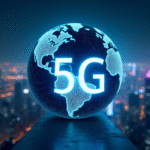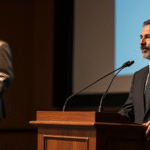Introduction
Claudia Sheinbaum, the current president of Mexico City, has inherited and deepened Andrés Manuel López Obrador’s (AMLO) ethnocentric and impoverished foreign policy. This approach risks further disconnecting Mexico from the global political landscape, reducing its international influence to a provincial level.
Juan Ramón de la Fuente’s Speech at the UN
During Juan Ramón de la Fuente’s speech at the United Nations General Assembly, it became evident that Mexico’s foreign policy under Sheinbaum will likely be another lost decade, obsessed with promoting a dogmatic diplomacy.
De la Fuente’s speech was rooted in electoral motives rather than representing the nation’s interests. His words were more akin to those of an Iztapalapa, Miguel Hidalgo, or Benito Juárez ward alderman than those of a diplomatic representative.
Wasted Human Resources and Dogmatic Diplomacy
The Mexican foreign service faces a concerning waste of human resources, risking a transition from dogmatic diplomacy to one focused on potholes—an exterior profile marred by radical ethnocentrism.
Global challenges necessitate bold diplomacy, not representatives who fail to look beyond their immediate surroundings.
Mexico’s International Relations: Cuba, Venezuela, and Human Rights
Mexico’s support for Cuba, despite the lack of liberties and systematic human rights violations resulting from the dictatorship, exemplifies its skewed priorities.
De la Fuente is aware that his government violates Article 89 of the Constitution, specifically the section on Mexico’s international human rights obligations.
The silence surrounding Venezuela’s crimes against humanity, committed by dictator Nicolás Maduro, further highlights Mexico’s questionable stance on human rights issues.
De la Fuente’s speech touched on environmental matters, boasting about tree planting initiatives without substantiating claims or addressing the ecological disaster beneath a phantom train line.
The State of the UN and International Cooperation
Observing the UN’s 80th anniversary revealed its precarious state.
Two significant issues plague international cooperation: the current distribution of global power differs from when the UN was established, and there is a lack of a hegemonic power to ensure its functionality.
Key Questions and Answers
- What is the current state of Mexico’s foreign policy? Under Claudia Sheinbaum, Mexico’s foreign policy has become increasingly ethnocentric and isolated, risking its global political influence.
- What were the main points of Juan Ramón de la Fuente’s UN speech? De la Fuente emphasized Mexico’s democracy, liberties, and plurality, despite concerns over the legitimacy of institutions following electoral fraud. He also addressed human rights in Cuba and Venezuela, albeit without taking a firm stance.
- What challenges does international cooperation face? The uneven distribution of global power and the absence of a dominant power to enforce cooperation pose significant challenges to international collaboration.






